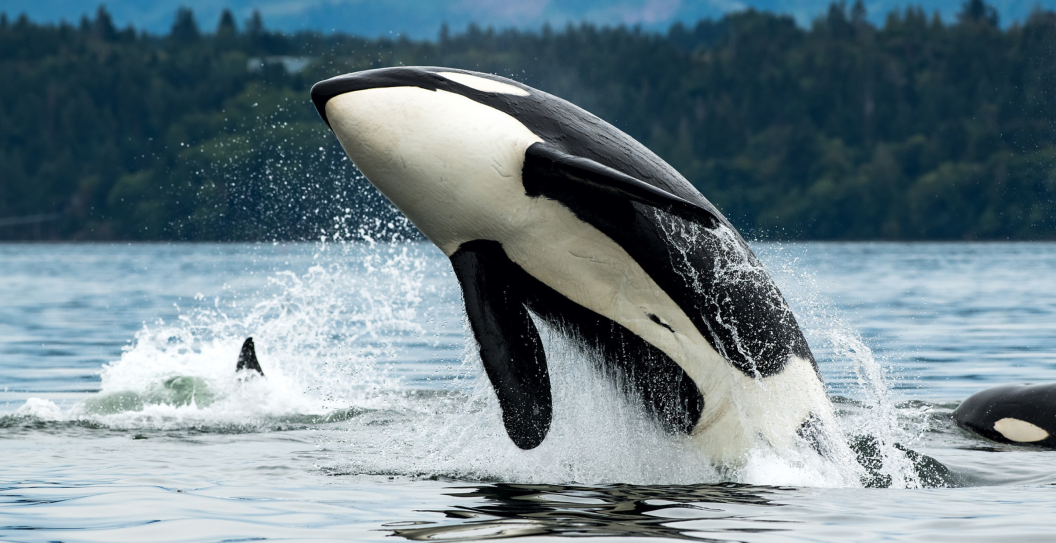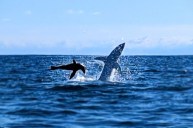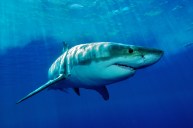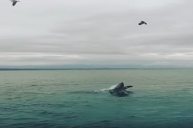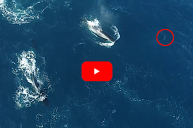Great white sharks are widely regarded as the ocean's apex predators. But a new study—which reveals footage of a single orca attacking and killing a great white off South Africa's coast—suggests otherwise. In their research, published in the African Journal of Science, scientists noted that the orca grabbed the 8.2-foot-long shark's fin and "thrust forward several times before eventually eviscerating it."
The maneuver allowed the orca to access the young shark's liver, which it ate before leaving the rest of the carcass to float in the waters off Cape Town. Scientists proclaimed that the experience was "astonishing" and "unprecedented."
However, this isn't the first time scientists have caught orcas feasting on sharks. In 2022, two orcas known as Starboard and Port were seen attacking sharks together. According to their research, scientists said the drones captured what looked like two orcas pursuing white sharks. Once they realized what was happening, the sharks swam tight circles around one whale, but the second whale cut off their escape route. The pair of orcas then attacked and killed the sharks, also eating their livers.
"But this caught us off guard," said Dr. Alison Towner, shark biologist and co-author of the more recent study, when speaking to BBC News. The male orca's solo attack lasted under two minutes.
"It's interesting that it's just one animal," said Dr. Luke Rendell of the University of St. Andrews. "A great white shark is a nice, big concentration of food, so it's perhaps unsurprising that some populations [of orcas], where these sharks occur in sufficient numbers, have learned to exploit that."
They did note that Port was seen 100 meters away from the incident and did not participate. However, a second shark carcass was found on the shore near Mossel Bay, with telltale signs of a similar attack and a missing liver.
The two biologists are unsure how the whales get to the shark's livers but believe "torsion or tension" is used. They will continue to study their remains for further clues. They will also continue to study why this is happening and its effect on both species. Shark livers are full of nutritional value, and it's believed that one great white shark's liver could sustain an orca for an entire day. But if apex predators are being taken down, what does that mean for population management overall?
"Managing complex interactions among protected species, particularly those that have recently experienced population declines, poses significant management difficulties," the scientists wrote. "Such challenges could become even more pronounced as a result of ecosystem alterations triggered by climate change and other human-induced stresses."
While this behavior is just now being documented, it's impossible to say that it hasn't been going on for years. There's only one thing scientists can all agree on: Orcas may be the ocean's best hunters.
